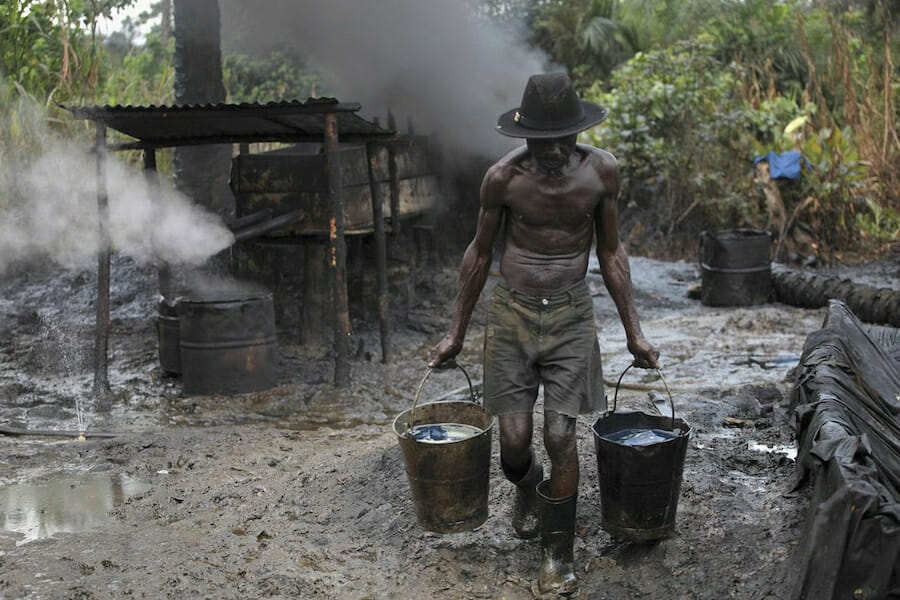Tackling the oil thieves, economic saboteurs
One of the most obvious examples of Nigerian economic sabotage has been the theft of crude oil. Since the efforts made by successive governments to bring the mysterious cartels responsible for the heinous economic crime to justice have been ineffective, this economic malignancy has been quietly devouring the nation’s fortunes for years. The media space […]

One of the most obvious examples of Nigerian economic sabotage has been the theft of crude oil. Since the efforts made by successive governments to bring the mysterious cartels responsible for the heinous economic crime to justice have been ineffective, this economic malignancy has been quietly devouring the nation’s fortunes for years.
The media space is overrun with negative stories quoting fictitious numbers about the number of barrels stolen daily and their dollar equivalent, despite the fact that there have been no conclusive and trustworthy estimates of the total amount of crude oil stolen.
While it is critical to understand the amount of money Nigeria loses to oil theft and vandalism, it is also crucial to draw attention to the measures taken by the government to combat the problem.
The Nigeria Police has been working extremely hard to put an end to the actions of economic jackals who have been taking resources that could have been used for the benefit of the majority. Even though the cartels that steal crude oil are notorious and highly organised and sophisticated, the creation of the Inspector-General of Police Special Task Force on Petroleum and Illegal Bunkering (IGP-STFPIB) is bringing elixir of hope and assurance that oil theft in the country will soon become a thing of the past. As a matter of fact, recent results reported by the special team demonstrated that the once surreptitious oil thefts can be wiped out through well-planned and organised effort.
During the briefing of the Senate Ad hoc Committee to Investigate Oil Lifting, Theft and the Impact on Petroleum Production and Oil Revenues on September 21, a report of the activities of the task force was presented and it shows a deliberately sustained fight with salient achievements. Some of the achievements, according to the police, include the seizure of 1,301,020 litres of Automotive Gas Oil (AGO), 135,000 litres of crude oil, 4,900 litres of premium motor spirit (PMS), 45,000 litres of engine oil, and 123 tankers, with 52 cases currently under prosecution nationwide.
Unfortunately, since this positive news became public, mischief makers and hate-mongers have suddenly gone berserk, disseminating false information. Despite the blurring of the lines between truth and falsehoods due to the activities of fifth columnists, Nigerians are more informed and can tell the difference between the two. Nigerians are also aware that if corruption is properly tackled, it is not anticipated that corrupt people will remain in limbo while having their source of survival cut off.
The oil theft cartels have been utilizing certain anonymous characters to wage a fictitious fight with the police, as was to be expected. They strategically use media organizations with plummeting reputation and whose credibility has now been damaged by avarice and intrusion.
The fight against economic saboteurs and other criminal elements is too important to be left in the hands of police and other law enforcement agencies alone. If Nigeria fails, we are all to blame. Fighting crime and criminality is therefore our collective responsibility.
Comrade Ben Abdul is a public affairs analyst
